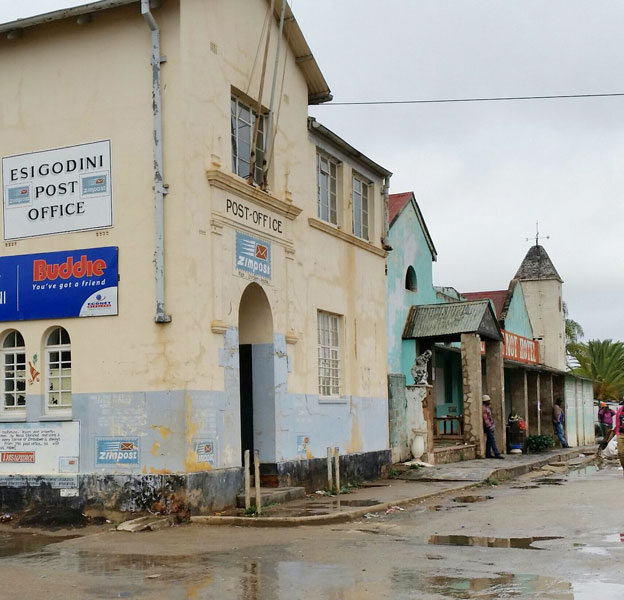
BY NQOBANI NDLOVU
ESIGODINI, a small town situated along the Bulawayo-Beitbridge highway, in Matabeleland South has two gold belts on which sit several mines, the largest being Bushtick Mine, now site of Falcon College private school.
Esigodini literally translated to mean “valley”, falls under Umzingwane district in a province that is very rich in gold deposits with more than 6 000 registered mining claims.
The district is a magnet for artisanal miners from across the country searching for the precious stone.
Its main gold belt originates in the neighbouring Insiza district and runs through the estate in a northerly direction. The other belt branches off near Mbalabala and runs west.
Records show intensive gold production in Esigodini began in the 1920s with the Bushtick Mine said to have been one of the biggest producers during its heydays from 1932 to 1947 before its closure in 1951.
Yet for all its vast mineral resources, Esigodini has nothing to show for its gold as infrastructure in the area is poor. There are no high-rise buildings, no big retail shops or shopping centres.
The same reads for Bubi, a district in Matabeleland North, which is endowed with mineral wealth.
- Chamisa under fire over US$120K donation
- Mavhunga puts DeMbare into Chibuku quarterfinals
- Pension funds bet on Cabora Bassa oilfields
- Councils defy govt fire tender directive
Keep Reading
Bubi is endowed with an array of mineral deposits namely gold, lime, garnet, diamond, nickel and copper.
Geological surveys carried out in Bubi district have shown that there are kimberlite pipes for diamonds stretching as far as Lupane district, which are still to be explored to establish a resource that is mineable.
Villagers in Bubi and Esigodini live in abject poverty while social services like schools and clinics are few, resulting in them being forced to walk long distances to access services.
Schools in Bubi have poor infrastructure and are shunned by teachers.
Bubi also suffers from the shortage of schools especially in areas where people were resettled under the land reform programme.
Like Bubi, Esigodini is not expanding in relation to the mineral riches in the area.
There is virtually no meaningful development in Bubi and Esigodini.
Only several nightspots have mushroomed over the years at the two centres, providing a battleground for turf wars pitting various artisanal miners.
A month hardly passes without reports of violence involving the artisanal miners in Bubi and Esigodini.
In May, a well-known gold dealer in Esigodini, Baron Dube was nearly killed after he was axed in a fight over mining claims.
Incidentally, Dube was on $2 000 bail pending trial at the High Court for allegedly shooting and killing a member of a rival mining gang, Antony Bvundura, in October 2018 in a fight over a mining claim in Esigodini.
Umzingwane legislator Levy Mayihlome blamed “outsiders” for the gold wars that have bedevilled the area, adding locals are not benefiting from their natural resource.
“Most of them [gold panners] are not locals. They move from other villages and cause terror.
“They disturb the peace of Esigodini villagers while also looting their resources,” he was reported saying.
“As a legislator for the area, I am advocating for a situation where when these people come here in search of gold, they should first go for vetting by the police.”
Reports have shown that the artisanal miners group themselves according to their places of origin.
For example, there have been groups known as amaGokwe, amaNkayi, amaFilabusi and amaKwekwe who have been cited in gold turf wars against locals.
Bulawayo-based human rights activist Khumbulani Maphosa requested the Zimbabwe Human Rights Commission and National Peace and Reconciliation Commission to investigate why the killings and violence involving gold panners were rampant in Bubi and Esigodini.
“Section 44 of the constitution mandates that the state, every person including juristic persons and every institution and agency of government at every level must respect, protect, promote and fulfil the rights and freedoms of the people,” he said.
“My concern is that state agencies have been failing to protect the Matabeleland artisanal miners from loss of life, violence and targeted discriminatory killings.”
Analysts blame underdevelopment in Bubi and Esigodini on government’s failure to implement devolution.
There has been little movement on devolution that was enacted in the 2013 constitution following incessant complaints about marginalisation by central government from communities in underdeveloped provinces.
To date, there is no enabling law to operationalise devolution despite government last year approving principles of the Provincial Councils and Administration (Amendment) Bill.
Finance minister Mthuli Ncube in April said a map showing poverty levels per district was going to be used to determine how much each province will get from the US$310million allocated for the exercise in the 2019 budget.
The opposition accuses government of being dishonest when it comes to implementing devolution as Abednico Bhebhe, a former Nkayi South legislator and current MDC T chairperson argued.
“It takes an insensitive government to ignore these loud and clear voices of reason,” he said.
“The Zimbabwe government is currently short-changing the citizens by pretending to be implementing devolution of power without the necessary and enabling legislation.
“The participation in the affairs of the country must not be a favour extended to citizens by the party in government, but citizens should earn it through the necessary legislation as provided in the constitution.”










